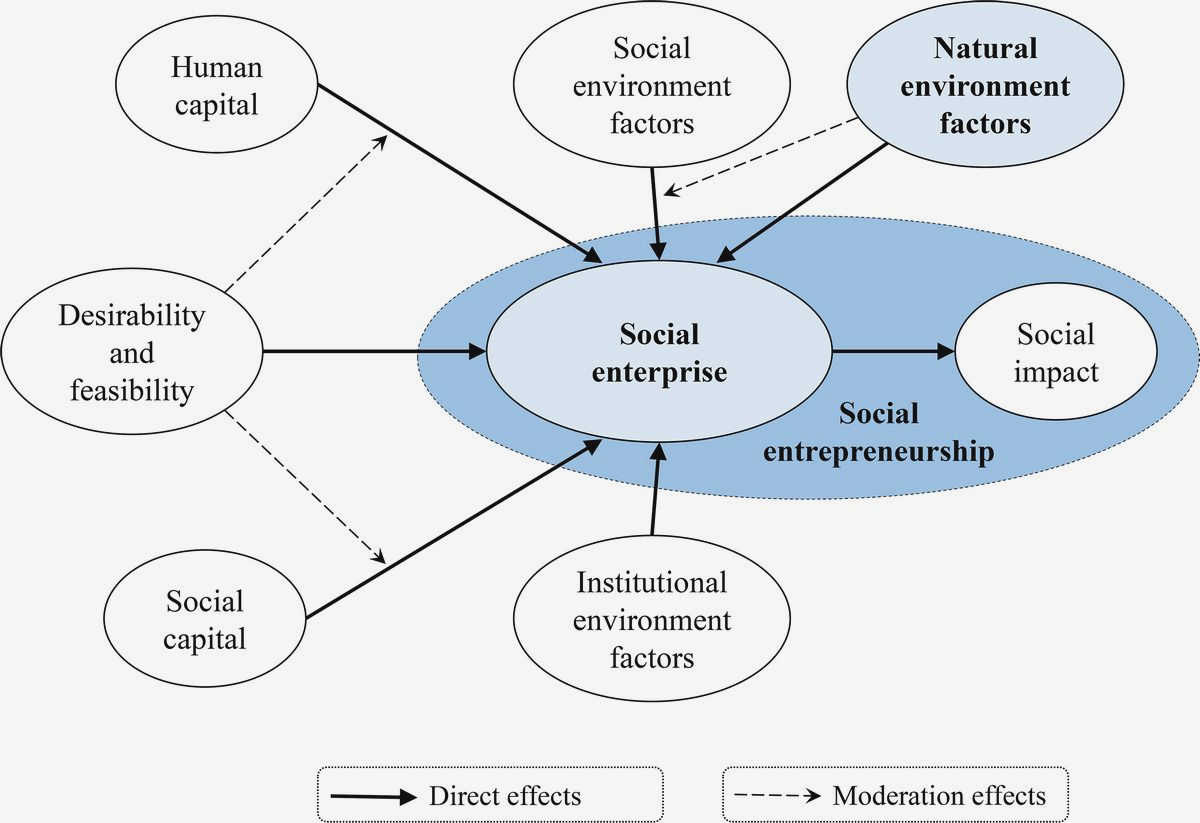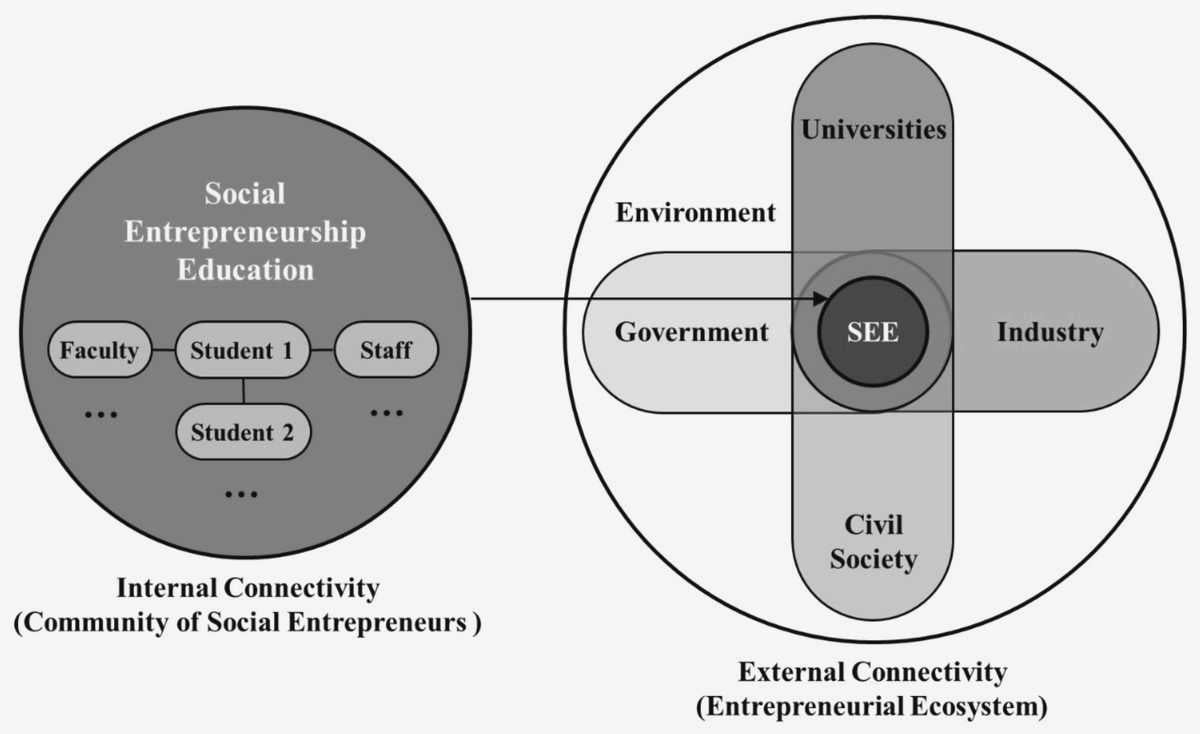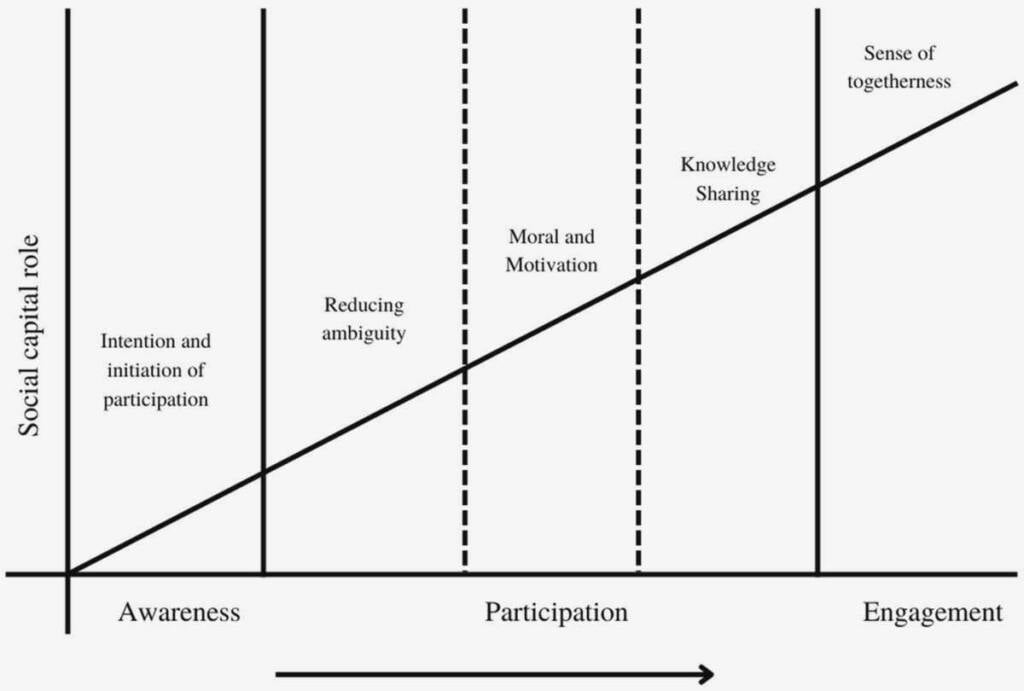In recent years, there has been a significant increase in the number of individuals and organizations turning to social entrepreneurship as a means to address complex social and environmental issues. Social entrepreneurship, which combines entrepreneurial principles with a social mission, has gained traction as a powerful tool for creating positive change within civil society.
One of the key drivers behind the growth of social entrepreneurship is the recognition of the limitations of traditional approaches to addressing social challenges. Governments and non-profit organizations have long been the primary actors in the social sector, but they often face bureaucratic red tape, limited resources, and a lack of innovative solutions.
Social entrepreneurship offers a fresh perspective by harnessing the power of entrepreneurship and innovation to create sustainable, scalable, and impactful solutions. It empowers individuals and organizations to identify and tackle social problems in a creative and market-oriented manner, combining profitability with a strong social mission.
Moreover, social entrepreneurship has the potential to leverage resources and mobilize actors from a diverse range of sectors. By engaging businesses, governments, non-profit organizations, and the general public, social entrepreneurs can tap into a wealth of expertise, infrastructure, and financial support to drive their initiatives forward.
As the field of social entrepreneurship continues to grow, it is crucial to explore the various factors that contribute to its success and impact. This article will delve into the key drivers behind the growth of social entrepreneurship, the challenges it faces, and the potential opportunities it presents for addressing pressing social issues in civil society.
The Evolution of Social Entrepreneurship
Social entrepreneurship has undergone a significant evolution over the years, adapting to the changing societal needs and economic landscapes. From its early beginnings as a niche concept to its current position as a driving force in civil society, social entrepreneurship has come a long way.
In the early stages, social entrepreneurship was primarily focused on creating innovative solutions to address social and environmental challenges. These early social entrepreneurs recognized that traditional approaches were not sufficient in tackling complex issues and sought to create sustainable and scalable models for social change.
Over time, social entrepreneurship has expanded its scope and evolved into a multidimensional field. Today, it encompasses a wide range of activities, including but not limited to, social enterprises, impact investing, and corporate social responsibility initiatives. Social entrepreneurs are now not only developing innovative solutions, but also mobilizing resources, building partnerships, and advocating for policy changes.
One of the key drivers of the evolution of social entrepreneurship has been the increased recognition of its potential for creating positive impact. Governments, foundations, and the private sector have all started to acknowledge the role of social entrepreneurs in addressing pressing social and environmental challenges. This recognition has paved the way for increased support and funding for social entrepreneurship initiatives.
Furthermore, technological advancements have played a significant role in shaping the evolution of social entrepreneurship. The rise of the internet and social media has provided social entrepreneurs with unprecedented access to resources, networks, and markets. This has enabled them to scale their impact and reach larger audiences, creating ripple effects throughout civil society.
Overall, the evolution of social entrepreneurship has been driven by the need to find innovative solutions to complex challenges, increased recognition of its potential for creating positive impact, and advancements in technology. As social entrepreneurship continues to evolve, it will undoubtedly play a crucial role in shaping the future of civil society.
The Rise of Civil Society and its Impact
Civil society plays a crucial role in any democratic society, serving as a bridge between the state and individuals. It is characterized by the presence of organized groups, associations, and non-governmental organizations that aim to address social issues and promote the welfare of citizens.
Over the years, civil society has witnessed a significant rise in its influence and impact on society. One of the key factors contributing to this growth is the increasing recognition of the importance of citizen participation and engagement in decision-making processes. Governments and international organizations are increasingly acknowledging the role of civil society in promoting social development and influencing policy decisions.

Civil society organizations (CSOs) have become major drivers of change, advocating for the rights of marginalized groups, promoting social justice, and initiating innovative solutions to societal challenges. They have played a pivotal role in addressing issues such as poverty, inequality, gender discrimination, environmental degradation, and human rights violations.
The impact of civil society extends beyond their direct interventions and initiatives. They also contribute to the development of social entrepreneurship, which harnesses the power of business principles to address social and environmental issues. Social entrepreneurs within civil society create innovative enterprises that generate both social and financial returns.

Furthermore, civil society organizations serve as platforms for fostering collaboration and partnerships between different stakeholders, including governments, businesses, and communities. They create spaces for dialogue and cooperation, facilitating the exchange of knowledge, expertise, and resources. This collaborative approach enables the co-creation and implementation of effective solutions to complex societal problems.
In conclusion, the rise of civil society and its impact on society are undeniable. Through their activism, advocacy, and social entrepreneurship, civil society organizations have been instrumental in driving positive change, promoting social justice, and addressing pressing global challenges. Their role in shaping policies, mobilizing communities, and fostering collaboration makes civil society an essential pillar of democratic societies around the world.
The Role of Innovation in Social Entrepreneurship
Innovation plays a crucial role in the success of social entrepreneurship. It is through innovative ideas and approaches that social entrepreneurs are able to address complex social problems and create sustainable and impactful solutions.
One key aspect of innovation in social entrepreneurship is the ability to think outside the box and challenge traditional ways of doing things. Social entrepreneurs are often motivated by a deep passion for addressing social issues and are willing to take risks in order to create positive change. This mindset of innovation allows them to come up with creative solutions that may not have been considered before.
Another important role that innovation plays in social entrepreneurship is in the development of new technologies and models. Social entrepreneurs are known for their ability to leverage new technologies and disruptive business models to create scalable and sustainable solutions. From using mobile applications to connect marginalized communities with essential services to creating new financing models that support social enterprises, innovation is at the heart of these advancements.
Furthermore, innovation in social entrepreneurship also involves collaboration and co-creation. Social entrepreneurs often work with a range of stakeholders including government, non-profit organizations, and the private sector to develop innovative solutions. This collaborative approach allows for diverse perspectives and expertise to be brought together, leading to more effective and impactful solutions.
In conclusion, innovation is a critical component of social entrepreneurship. Through innovative thinking, social entrepreneurs are able to address social problems in new and effective ways. By challenging traditional approaches, leveraging new technologies and models, and collaborating with various stakeholders, social entrepreneurs are able to drive positive social change and make a lasting impact in civil society.
Funding and Support for Social Entrepreneurs
Grants
Social entrepreneurs can access funding through various grants offered by foundations, government agencies, and philanthropic organizations. These grants can provide financial support for developing and scaling social entrepreneurship initiatives. The eligibility criteria for grants may vary, but typically, applicants are required to demonstrate the social impact and sustainability of their projects.
Impact Investing
Another avenue for funding social entrepreneurs is through impact investing. Impact investors provide capital to businesses or organizations that generate social and environmental impact alongside financial returns. This form of funding allows social entrepreneurs to access capital from private investors who are aligned with their mission and vision. Impact investors may also provide mentoring and advisory support to help social entrepreneurs succeed.
Incubators and Accelerators
Incubators and accelerators are programs that provide resources, mentorship, and support to social entrepreneurs. These programs can offer funding, office space, networking opportunities, and access to a community of like-minded individuals. By participating in an incubator or accelerator, social entrepreneurs can receive guidance and financial support to develop their projects and increase their chances of success.
Crowdfunding
Crowdfunding platforms have become popular for social entrepreneurs to raise funds for their projects. Through these platforms, social entrepreneurs can create a campaign and invite individuals from around the world to contribute financially. Crowdfunding allows social entrepreneurs to reach a large audience, generate awareness for their cause, and receive direct support from individuals who resonate with their mission. Successful crowdfunding campaigns can not only provide funding but also help establish partnerships and grow a community of supporters.
Social Impact Bonds
Social Impact Bonds (SIBs) are a financing instrument that enables governments and private investors to collaborate in funding solutions to social issues. In an SIB, private investors provide upfront capital to social entrepreneurs or organizations working on a specific social challenge. If the predetermined social outcomes are achieved, the government repays the investors with a return on their investment. SIBs offer social entrepreneurs a unique opportunity to access funding while aligning their work with government priorities.
Overall, funding and support options for social entrepreneurs are diverse and continually evolving. Social entrepreneurs should explore various avenues to find the right funding and support opportunities that align with their mission and goals.
Challenges and Obstacles in Scaling Impact
1. Limited resources: One of the major challenges in scaling the impact of social entrepreneurship is the limited availability of resources. Many social enterprises operate on tight budgets and struggle to access funding that can help them expand their operations and reach. This lack of resources can hinder their ability to implement innovative solutions and make a significant impact on society.
2. Lack of scalability: Another obstacle in scaling impact is the inherent nature of some social entrepreneurship initiatives. Some solutions that work on a small scale may not be easily scalable to a larger audience or different contexts. This can limit the potential reach and impact of social enterprises, making it difficult to achieve sustainable growth and long-term change.
3. Resistance to change: Social entrepreneurship often challenges existing social norms and structures, which can lead to resistance and opposition from various stakeholders. Resistance to change can hinder the scaling of impact by creating barriers and obstacles that need to be overcome. It requires strong leadership and effective communication to navigate these challenges and gain support for innovative ideas and solutions.
4. Regulatory hurdles: The regulatory environment and legal frameworks can pose significant obstacles to scaling the impact of social entrepreneurship. Compliance with regulations, obtaining necessary licenses, and navigating complex legal systems can be time-consuming and resource-intensive. This can slow down the growth of social enterprises and limit their ability to expand their impact.
5. Measurement and evaluation: Measuring the impact of social entrepreneurship is a challenging task. It can be difficult to quantify the social and environmental benefits generated by social enterprises, making it harder to demonstrate the value of their work and attract support. Developing effective measurement and evaluation frameworks is essential for scaling impact and demonstrating the success of social entrepreneurship initiatives.
6. Collaboration and partnerships: Scaling impact often requires collaboration and partnerships with other organizations, governments, and stakeholders. However, building and maintaining these partnerships can be challenging. Aligning different interests and priorities, managing expectations, and ensuring effective collaboration can be time-consuming and require strong relationship-building skills.
7. Limited market demand: The demand for social enterprise products and services may be limited or niche, making it difficult to scale their impact. Social enterprises often target underserved populations or address specific social issues, which may not have a large market demand. This can limit the growth potential of social enterprises and make it challenging to achieve widespread impact.
8. Impact measurement and reporting: Communicating the impact of social entrepreneurship is crucial for attracting support and scaling impact. However, effectively measuring and reporting impact can be complex and time-consuming. Social enterprises need to develop robust impact measurement systems and effectively communicate their achievements to stakeholders.
9. Public perception and awareness: Limited public awareness and understanding of social entrepreneurship can hinder its scaling impact. Many people are not familiar with the concept of social entrepreneurship and may not recognize its potential for creating positive social change. Raising awareness and changing public perceptions can help overcome this obstacle and create more support for scaling the impact of social entrepreneurship.
Success Stories: Inspiring Social Entrepreneurs
1. Jane Chen – Embrace Innovations
Jane Chen is the co-founder of Embrace Innovations, a social enterprise that aims to reduce infant mortality in developing countries. Embrace Innovations has developed a low-cost infant warmer that can be used in resource-constrained settings. The device has already helped thousands of babies in countries like India and Uganda, where access to traditional incubators is limited. Jane’s dedication to improving healthcare for newborns has made a significant impact, saving countless lives.
2. Veronika Scott – The Empowerment Plan
Veronika Scott is the founder of The Empowerment Plan, a Detroit-based organization that provides jobs and support to homeless individuals. Veronika’s flagship product is a coat that can transform into a sleeping bag, designed specifically for people experiencing homelessness. The Empowerment Plan has not only provided warmth and shelter to individuals living on the streets but has also empowered them with the skills and resources needed to regain their independence. Veronika’s innovative approach to tackling homelessness has received widespread recognition.
3. Anshu Gupta – Goonj
Anshu Gupta is the founder of Goonj, a social venture in India that turns unused clothing and household items into essential resources for marginalized communities. Through Goonj, Anshu has been able to address multiple social issues such as poverty, sanitation, and education. The organization provides people with basic necessities in exchange for their contributions, encouraging a culture of giving and creating a sustainable cycle of resource redistribution. Anshu’s work has not only improved the lives of countless individuals but has also raised awareness about the potential of using recyclable materials for social good.
4. Wendy Kopp – Teach For All
Wendy Kopp is the co-founder of Teach For All, a global network of organizations that recruit and train individuals to teach in underprivileged communities. The organization aims to provide quality education and equal opportunities to children who would otherwise be left behind. Wendy’s vision for educational equity has inspired numerous individuals to join the movement and make a difference in the lives of students worldwide. The impact of Teach For All can be seen in the success stories of students who have overcome obstacles and achieved greatness.
5. Muhammad Yunus – Grameen Bank
Muhammad Yunus is the founder of Grameen Bank, a microfinance institution that provides small loans to impoverished individuals, particularly women, in Bangladesh. Muhammad Yunus pioneered the concept of microcredit, recognizing the power of financial inclusion in alleviating poverty. Grameen Bank has helped millions of people start their own businesses, escape the cycle of poverty, and improve their living conditions. Yunus’ groundbreaking work earned him the Nobel Peace Prize in 2006 and has inspired similar initiatives worldwide.
In conclusion, these inspiring social entrepreneurs have demonstrated the power of innovative solutions and entrepreneurial thinking in addressing social challenges. Their success stories serve as a reminder that with determination and creativity, it is possible to create lasting social impact and improve the lives of vulnerable populations.
Collaborations and Partnerships in the Social Sector
Collaborations and partnerships play a crucial role in the social sector, enabling social entrepreneurs to maximize the impact of their initiatives. By working together with other organizations, social entrepreneurs can leverage resources, expertise, and networks to tackle complex social issues more effectively.
Shared goals and values: Collaborations and partnerships in the social sector are built on shared goals and values. When social entrepreneurs and organizations come together around a common mission, they can align their efforts and pool their resources to achieve greater impact.
Complementary strengths: Collaborations allow social entrepreneurs to tap into the complementary strengths of partner organizations. By bringing together diverse skill sets and expertise, they can address various aspects of a complex social problem in a more comprehensive and holistic manner.
Resource mobilization: Partnerships in the social sector provide access to a wider range of resources. This includes funding, knowledge, networks, and infrastructure. Social entrepreneurs can leverage these resources to scale their initiatives, reach more beneficiaries, and create sustainable solutions.
Knowledge sharing and learning: Collaborations facilitate knowledge sharing and learning among different organizations. Through partnerships, social entrepreneurs can exchange best practices, innovative ideas, and lessons learned. This enables them to continuously improve their approaches and adapt to changing social dynamics.
Stakeholder engagement: Collaborative initiatives in the social sector often involve engaging multiple stakeholders, including communities, government agencies, and corporate partners. By bringing different perspectives and voices to the table, social entrepreneurs can develop more inclusive and effective solutions that address the needs and aspirations of all stakeholders.
Impact amplification: Partnerships in the social sector have the potential to amplify impact. By combining efforts, organizations can reach larger audiences, influence policy change, and create lasting systemic impact. Collaboration allows social entrepreneurs to think beyond their individual initiatives and work towards larger-scale social change.
Social Entrepreneurship and Sustainable Development Goals
Social entrepreneurship plays a crucial role in achieving the Sustainable Development Goals (SDGs). The SDGs are a set of 17 interconnected goals established by the United Nations to address the world‘s most pressing social, economic, and environmental challenges by 2030.
By applying entrepreneurial principles to social issues, social entrepreneurs contribute towards the achievement of these goals. They identify social problems, develop innovative solutions, and create sustainable business models that generate both financial returns and social impact.
Social entrepreneurs focus on specific SDGs:
- Eradicating poverty: Social entrepreneurs tackle poverty by creating employment opportunities, empowering marginalized communities, and providing access to essential services like healthcare and education.
- Promoting gender equality: Many social entrepreneurs are actively involved in initiatives that empower women, promote gender equality, and provide economic opportunities for disadvantaged women.
- Ensuring access to quality education: Social entrepreneurs develop innovative approaches to address challenges in education, such as providing affordable and accessible education for underserved communities.
- Combatting climate change: Social entrepreneurs promote sustainable practices and develop technologies to reduce carbon emissions and adapt to the effects of climate change.
Social entrepreneurs collaborate with key stakeholders:
Effective collaboration with governments, non-profit organizations, and business entities is crucial for the success of social entrepreneurship in achieving the SDGs. By partnering with these stakeholders, social entrepreneurs can leverage resources, access funding, and scale their impact.
The role of social entrepreneurship in implementing the SDGs:
Social entrepreneurship complements traditional approaches to development by fostering innovation, empowering communities, and addressing complex social challenges. It provides sustainable solutions that can be replicated and scaled, creating long-term impact and contributing towards the achievement of the SDGs.
The Future of Social Entrepreneurship
Social entrepreneurship is an evolving field that continues to gain momentum and impact positively on society. As we look to the future, it is clear that social entrepreneurship will play a crucial role in addressing the pressing social and environmental challenges we face.
1. Increasing Collaboration: In the future, social entrepreneurship will thrive through increased collaboration, both within the sector and with other stakeholders such as governments, corporations, and nonprofits. This collaboration will enable the pooling of resources, expertise, and networks, leading to more innovative and scalable solutions to social problems.
2. Leveraging Technology: Technology will continue to be a driving force in the future of social entrepreneurship. From leveraging data analytics to identify and target social issues, to utilizing blockchain for transparent and efficient operations, technology will enable social entrepreneurs to create greater impact and reach a wider audience.
3. Embracing Sustainability: The future of social entrepreneurship will be increasingly focused on sustainability, both in terms of environmental impact and financial viability. Social entrepreneurs will adopt sustainable business models that prioritize long-term social and environmental benefits while also ensuring financial sustainability to drive sustainability and scalability.
4. Empowering Local Communities: The future of social entrepreneurship will prioritize the empowerment of local communities. Social entrepreneurs will work closely with grassroots organizations and community leaders to understand and address the unique challenges and opportunities in each community, ensuring that solutions are contextually relevant, inclusive, and sustainable.
5. Policy and Regulatory Support: In order to thrive, the future of social entrepreneurship will require strong policy and regulatory support. Governments will play a pivotal role in creating an enabling environment that fosters innovation, provides financial incentives, and streamlines regulations to support the growth of social entrepreneurship.
- Conclusion: The future of social entrepreneurship holds great promise for driving meaningful and sustainable change. By embracing collaboration, leveraging technology, prioritizing sustainability, empowering local communities, and receiving policy and regulatory support, social entrepreneurs will continue to make a significant impact on civil society.
Empowering Individuals and Communities through Social Entrepreneurship
Social entrepreneurship plays a crucial role in empowering individuals and communities by addressing social and environmental challenges through innovative business models. These entrepreneurs are driven by a strong sense of purpose and a desire to create positive change in society.
Through their ventures, social entrepreneurs provide opportunities for individuals to develop their skills and talents, as well as creating employment opportunities within the community. By focusing on social impact rather than just profit, they empower individuals who may have faced barriers in traditional employment to take control of their own destiny.
One of the key ways social entrepreneurship empowers individuals is through providing access to education and training. Many social entrepreneurs recognize the importance of education in breaking the cycle of poverty and inequality. They develop innovative models that provide education and skills training to individuals who may not have had access to quality education before.

Furthermore, social entrepreneurs often work closely with marginalized communities to address their unique needs and challenges. They empower these communities by involving them in the decision-making process and giving them a voice in shaping the solutions. By doing so, social entrepreneurs create a sense of ownership and empowerment within these communities, allowing them to take charge of their own development.
Overall, social entrepreneurship has the ability to create a lasting impact on individuals and communities. By empowering individuals through education and employment opportunities, and by working alongside communities to address their specific challenges, social entrepreneurs are driving positive change and creating a more inclusive and sustainable society.





